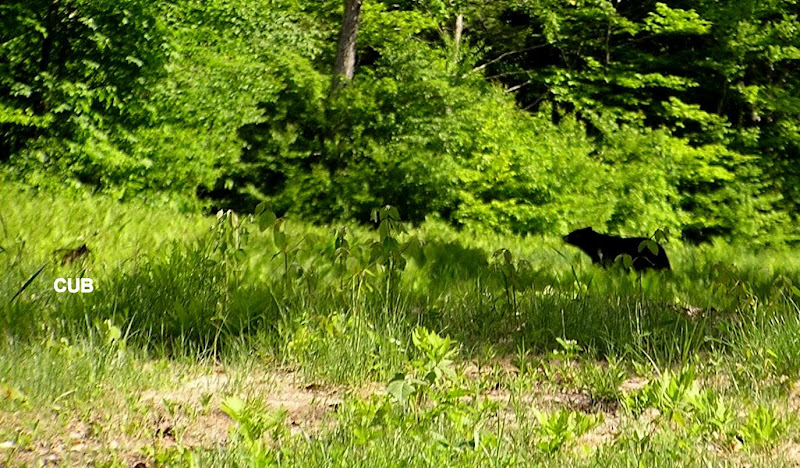erugs
New member
We were down to the new section of the Gale River Trail this wekeend and met a young man on his way up. He said he had been blowing his whistle to let the bear in the woods know he was there. (This is where hearing loss comes in handy - I hadn't heard it at all.) He described the bear as being near the trailhead and some other hikers had scared it away.
I thought back to an article from an old Appalachia (June '91) I had been reading recently with a story titled "Walking With the Bears" by Jeff fair which starts out with a quote by Dr. Lynn Rogers, "Most fear of bears comes from reading too much scare literature, talking to too many people who are afraid of them (it's catching) and spending too little time with actual bears." I guess he should know. He's a US Forest Service wildlife biologist with 24 years black bear study at the time the article was written. Here are some other interesting points from the story:
Since bears are out with cubs now, I thought this worth sharing and would scan the article for anyone who wants to read the whole thing.
What to do if you see a bear on the trail?
* Stand your ground, assert dominance, speak with calm confidence, back away slowly, remove yourself as a threat.
* In camp, make noise, don't have food available.
* "I'm much more impressed by the black bear's restraint than by its ferocity." (Rogers)
I thought back to an article from an old Appalachia (June '91) I had been reading recently with a story titled "Walking With the Bears" by Jeff fair which starts out with a quote by Dr. Lynn Rogers, "Most fear of bears comes from reading too much scare literature, talking to too many people who are afraid of them (it's catching) and spending too little time with actual bears." I guess he should know. He's a US Forest Service wildlife biologist with 24 years black bear study at the time the article was written. Here are some other interesting points from the story:
- "If we don't know what to believe, we embrace both extremes."
- They really are "not terrifying creatures, but neither are we perfectly safe among them."
- Fifteen years prior to '91, had been the "last attack." It was in the Lakes Region and a bear ran a surveyor up a tree...if the bear had wanted [him], it would [have] climbed the tree."
- Most bear "attacks" were found by researcher Barrie Gilbert to be "bluffs or false charges" and are "intended to carry a message but make no physical contact."
- "Wounded, threatened, or cornered bears are the ones most likely to attack." (Rogers)
- "Bears attack and kill other bears...why should humans expect greater consideration?" (Dale McCullough, behaviorist)
- "Some bears bluff charge people simply to separate the people from their food." (Rogers)
- Or cubs, which is "way overblown" (Rogers)
Since bears are out with cubs now, I thought this worth sharing and would scan the article for anyone who wants to read the whole thing.
What to do if you see a bear on the trail?
* Stand your ground, assert dominance, speak with calm confidence, back away slowly, remove yourself as a threat.
* In camp, make noise, don't have food available.
* "I'm much more impressed by the black bear's restraint than by its ferocity." (Rogers)
Last edited:






![Yellowstone National Park [Map Pack Bundle] (National Geographic Trails Illustrated Map)](https://m.media-amazon.com/images/I/51kGuJ72qjL._SL500_.jpg)








































![Grand Canyon, North and South Rims [Grand Canyon National Park] (National Geographic Trails Illustrated Map)](https://m.media-amazon.com/images/I/419Y-ycyVUL._SL500_.jpg)












![Grand Teton Day Hikes and National Park Map [Map Pack Bundle] (National Geographic Trails Illustrated Map)](https://m.media-amazon.com/images/I/41DB0jvRnbL._SL500_.jpg)

